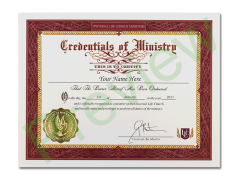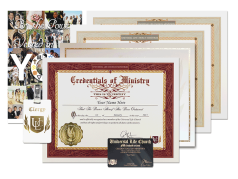
John Marshall Pike Jr
Ordained Minister in Resaca, Georgia
About Me:
Many of my favorite people who Stand and Live in Grace, Hope, and Mercy of True Faith. I grew up in the World that I was living in but set apart from with a Great Calling on my Life, along with a Gift Magnetism, In Which People of all Creed, Nationality, Race, Religion, Spirituality, Origins, Beliefs, Ethics, ,Identity, Culture orand Heritage are drawn which God uses to be a pastoral minister of The True and Unwaivering Word Of The Living Word of The Almighty God Creator of All. I think I have a good understanding of a pastor’s heart—both his joys and his struggles.
These days, my heart aches for pastors.
It aches because today their job is as difficult as it has ever been. We live in an anti-authority culture—one that has lost all respect for people in positions of authority and influence. The modern mindset is to tear down everybody and everything. It’s a destructive culture, driven by fierce pride and runaway self-esteem. It seems very few pastors are run out of their churches over bad sermons or ineffective ministry—usually, they’re run out by a person or a group contending for power and authority.
That difficulty is compounded by the intimidation of massive media ministries and celebrity preachers on TV, the Internet, and in flat-screen churches all over the country. Pastors today are told they need to embody an entrepreneurial spirit—that they need to grow their churches the way you would grow a business. They hear a lot about needing to impact the culture and engage the community, and they get all kinds of pragmatic advice on how to accomplish that. They’re told they need to reach beyond the church and revolutionize society. In fact, it seems much of the modern pastor’s work is supposed to take place outside the church.
That’s a discouraging, disheartening message for men who love the church and have given their lives in service to God’s people. It’s also unbiblical. Pastors have one job. They’re not called to be cultural evangelists, entrepreneurs, or revolutionaries. They’re called to faithfully feed the flock of God. They’re called to be shepherds.
Consider the apostle Peter’s instruction to church leaders in 1 Peter 5:1-2.
Therefore, I exhort the elders among you, as your fellow elder and witness of the sufferings of Christ, and a partaker also of the glory that is to be revealed, shepherd the flock of God among you, exercising oversight not under compulsion, but voluntarily, according to the will of God; and not for sordid gain, but with eagerness.
The solemn duty of every pastor is to feed God’s sheep. And as a pastor, the day you let your eyes move beyond the people sitting in your church is the day you’ve lost your purpose.
The focus of pastoral ministry is not the people outside the church, and it’s not drawing unbelievers to the church. The focus is on the people inside the church—the flock the Lord has sovereignly drawn together and entrusted into the care of a shepherd. The pastor has been set apart, as the apostle Paul put it, “for the equipping of the saints for the work of service, to the building up of the body of Christ; until we all attain to the unity of the faith, and of the knowledge of the Son of God, to a mature man, to the measure of the stature which belongs to the fullness of Christ” (Ephesians 4:12-13).
Pastors are not called to the culture, and we’re not called to the unconverted. We have been mandated to feed our flocks so they can grow spiritually. We’re called to serve the redeemed people of God as an agent of sanctification and protection. The measure of a man’s effectiveness in ministry is not the number of people in his congregation every week—it’s the Christlikeness of his congregation.
Religious Affiliations
Assemblies of God, Baptists, Christianity, Church of God, Church of God in Christ, Evangelicalism, Pentecostalism, Spiritualism, Worldwide Church of God, None
Types of Service Offered
Marriages, Renewal of Vows, Handfastings, Baptisms, Funerals, Christenings, House Blessings, Exorcisms




